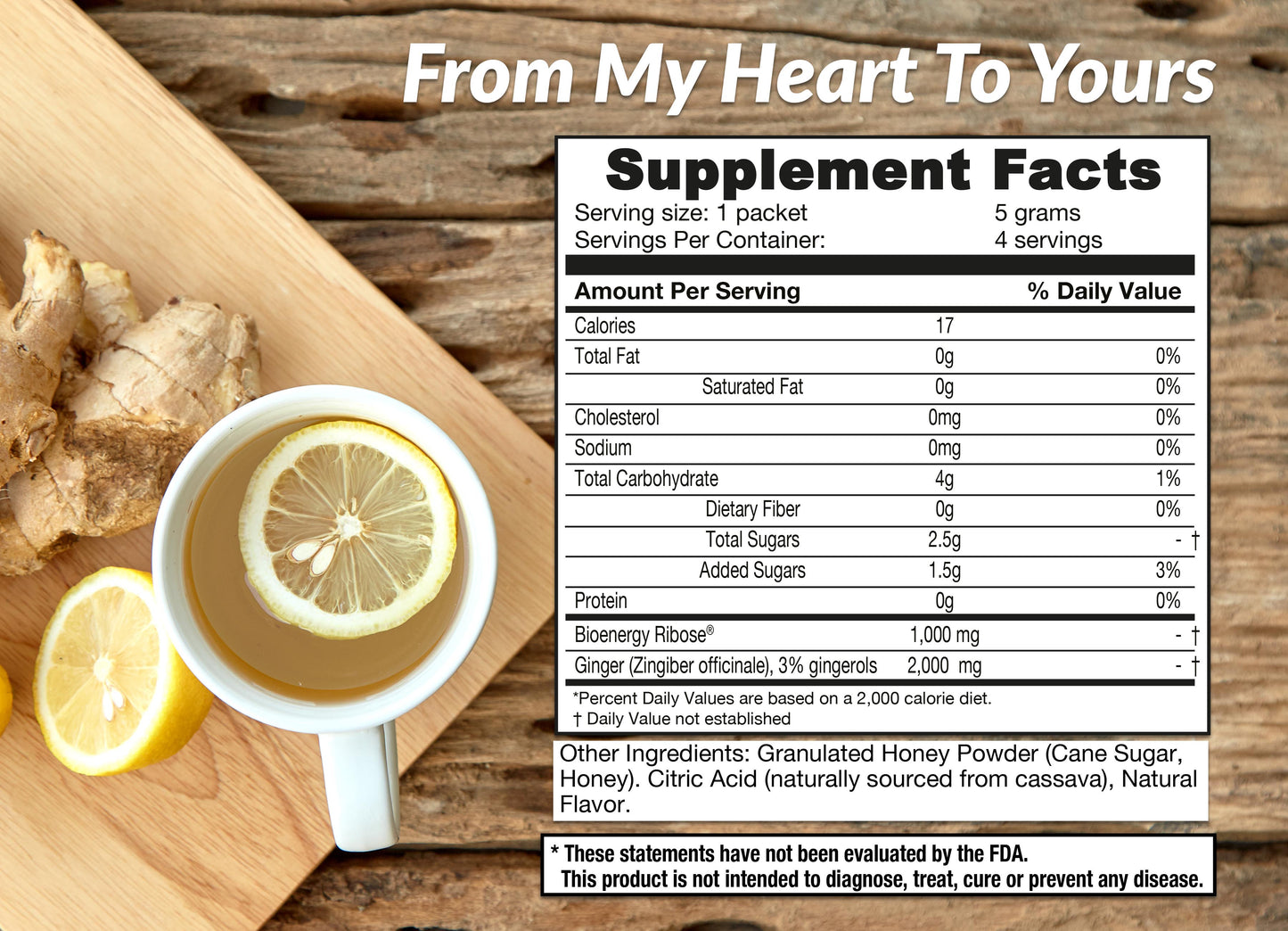The Hidden Cost of Nausea: Why Effective Management Matters Beyond Comfort
When you think of nausea, the first thing that likely comes to mind is a fleeting sense of discomfort. But for many, nausea is more than just an occasional upset—it's a persistent, life-disrupting issue with an impact that extends far beyond a queasy stomach.
In fact, studies suggest that about 12% of people experience nausea regularly, making it a significant yet often overlooked health concern.
The truth: Nausea isn't just a passing discomfort. Chronic nausea can disrupt daily life, affecting your physical and mental well-being, making effective management essential for long-term relief.
In this article, we delve into the hidden costs of chronic nausea, its most common causes, and how effective management can improve the overall quality of your life.
What Is Nausea?
Nausea is a complex, often uncomfortable sensation that can range from mild queasiness to a strong urge to vomit. It's a non-specific symptom—which means it can arise from a wide variety of underlying conditions and triggers.
However, even when the exact mechanisms aren't always clear, nausea often involves a combination of digestive, neurological, and emotional factors. You can think of nausea as essentially your body's way of reacting to perceived threats, toxins, or disruptions in the gut-brain connection.
The Overlooked Impact of Chronic Nausea
Nausea is often underestimated in its ability to disrupt daily life. Beyond the immediate discomfort, it can significantly impact your ability to function as well as potentially lead to other physical and emotional consequences.
Let's look at these in detail:
The Physical Toll of Nausea
Nausea can be a sign of a wide range of underlying issues, from gastrointestinal disorders to chronic illnesses like cancer, migraines, or vestibular disorders. The physical impact goes beyond just the urge to vomit.
Repeated bouts of nausea can lead to:
- Dehydration
- Malnutrition
- Weight loss
- Electrolyte imbalances
All of which can weaken your body's resilience over time. If you're already battling with other chronic conditions, this can mean slower recovery, increased susceptibility to infections, and a diminished overall quality of life.
Dehydration and Nutrient Deficiency
Constant nausea can make even the idea of eating or drinking unappealing, leading to dehydration and nutrient deficiencies. This can disrupt the body's ability to regulate blood pressure, maintain organ function, and remove waste—all of which can potentially create a downward health spiral.
⚠️ The Dehydration Danger
When nausea makes it hard to keep fluids down, dehydration can set in quickly. This affects everything from blood pressure regulation to organ function and waste removal—creating a dangerous cycle that's hard to break.
Muscle Loss and Weakness
If nausea makes it hard for you to eat enough protein and calories, muscle loss and weakness can set in. This is a serious concern for those recovering from surgery or undergoing treatments like chemotherapy, where maintaining muscle strength is crucial.
The Emotional & Mental Health Impact of Nausea
Living with frequent nausea can also take a major toll on your emotional health. The constant worry about when the next wave of nausea will hit can lead to anxiety and depression.
For those with conditions like Ménière's disease or cyclic vomiting syndrome, the unpredictability of nausea can disrupt everyday activities, making even simple outings feel stressful.
Social Isolation and Anxiety
Many people with chronic nausea start to avoid social situations out of fear of sudden discomfort or embarrassment. Over time, this isolation can lead to loneliness and a loss of self-confidence, creating a challenging emotional cycle.
Real Impact on Daily Life
"I stopped accepting dinner invitations because I was tired of canceling last minute. Eventually, people stopped inviting me. The loneliness was worse than the nausea itself." This is the reality for many people living with chronic nausea.
Cognitive Impact
Physical discomfort, including nausea, can also impair cognitive function. It's hard to concentrate, remember things, or even think clearly when you're constantly fighting off queasiness. Over time, this can affect work performance or academic success.
You don't have to live like this. Anti-na SIPS provides fast-acting, natural nausea relief so you can reclaim your social life, focus at work, and feel like yourself again.
Financial and Professional Costs
The financial impact of chronic nausea is often overlooked but can be significant. For those in demanding jobs or roles that require focus, frequent nausea can mean missed workdays, reduced productivity, and even job loss. This can create a cascade of financial stress that adds to the overall burden.
Healthcare Costs
Regular doctor visits, diagnostic tests, medications, and potential hospital stays for severe dehydration or malnutrition can add up quickly, placing a significant financial burden on individuals and families.
Common healthcare expenses from chronic nausea:
- Doctor visits: $150-$300 per visit
- Emergency room visits: $500-$3,000+ for severe episodes
- Prescription medications: $50-$200+ per month
- Diagnostic tests: $200-$2,000+
- IV hydration therapy: $200-$1,000 per session
Lost Wages and Career Impact
Missing work or struggling to focus because of nausea can also limit career growth, potentially reducing long-term earning potential and retirement savings. For freelancers or gig workers without paid sick leave, this impact can be immediate and severe.
💰 The Real Cost
Between lost wages, medical expenses, and reduced productivity, chronic nausea can cost thousands of dollars annually. Effective management isn't an expense—it's an investment that pays for itself.
Common Causes of Nausea
Understanding the triggers of nausea is an important first step toward effective management. Some of the most common causes include:
Motion Sickness
Motion-sickness-related nausea is often triggered by repeated motion, like when you are travelling in cars, boats, or planes. It occurs when your brain receives conflicting signals from the inner ear, eyes, and sensory nerves, leading to dizziness, sweating, and nausea.
Gastrointestinal Issues
Conditions like acid reflux, irritable bowel syndrome (IBS), gastritis, or gastroenteritis can cause nausea by irritating the stomach lining and disrupting your normal digestion.
Medication Side Effects
Many medications, including antibiotics, pain relievers, and chemotherapy drugs, list nausea as a common side effect.
Pregnancy
Pregnancy can come with its own set of challenges, and nausea—often called morning sickness—is one of the most common. It affects up to 70% of expectant mothers, usually in the first trimester, and is often linked to rapid hormonal changes and heightened sensitivity to certain smells.
Stress and Anxiety
Emotional distress can disrupt the gut-brain connection, slowing digestion and intensifying nausea. Anxiety can also cause stomach cramps and a heightened sensation of unease.
Infections and Viruses
Common illnesses like the flu, COVID-19, and stomach bugs often come with nausea as a primary symptom, as they can irritate the stomach lining or trigger an immune response affecting the gut.
Effective Nausea Management – More Than Just Comfort
Given these hidden costs, managing nausea effectively is not just about easing discomfort—it's about improving your quality of life, preserving physical health, and reducing long-term healthcare expenses.
Here are some proven ways of managing nausea:
Dietary Changes
Small, frequent meals, avoiding strong odors, and staying hydrated can help keep nausea at bay.
Tips for eating when nauseous:
- Eat smaller, more frequent meals instead of three large ones
- Choose bland, easy-to-digest foods
- Avoid greasy, fried, or very sweet foods
- Stay hydrated with small sips throughout the day
- Avoid strong-smelling foods that trigger nausea
Mind-Body Techniques
Practices like deep breathing, mindfulness, and acupuncture can help reduce anxiety and nausea symptoms.
Natural Remedies: The Power of Ginger
Ginger has long been recognized for its powerful anti-nausea properties. Studies suggest that it can effectively reduce the severity and duration of nausea, whether it's caused by motion sickness, pregnancy, or chemotherapy.
How ginger works for nausea relief:
- Blocks serotonin receptors in the gut (similar to prescription anti-nausea drugs)
- Speeds up gastric emptying (helps food move through your system)
- Reduces inflammation in the digestive tract
- Has direct effects on the brain's nausea centers
✓ Convenient, On-the-Go Relief
For a convenient, on-the-go solution, products like Anti-Na Ginger Chews and Anti-Na SIPS combine the soothing power of real ginger with natural ingredients, providing quick relief without added hassle.
Lifestyle Adjustments
Reducing stress, getting regular exercise, and prioritizing sleep can all contribute to reducing the frequency and intensity of nausea.
Lifestyle changes that help:
- Prioritize 7-9 hours of quality sleep
- Practice stress-reduction techniques (meditation, yoga, deep breathing)
- Get regular, gentle exercise
- Avoid triggers (certain foods, strong smells, stressful situations)
- Stay well-hydrated throughout the day
The ROI of Effective Nausea Management
Investing in effective nausea relief isn't just about comfort—it's about reclaiming your life and preventing costly complications.
| What You Gain |
The Impact |
| Fewer missed workdays |
Protect your income and career advancement |
| Reduced medical costs |
Fewer ER visits, doctor appointments, and medications |
| Better mental health |
Less anxiety, depression, and social isolation |
| Improved relationships |
Show up for family, friends, and social events |
| Better nutrition |
Prevent malnutrition, dehydration, and muscle loss |
| Quality of life |
Actually enjoy your life instead of just surviving it |
Final Thoughts
For anyone dealing with nausea, it's not just about managing a symptom – it's about reclaiming a sense of normalcy and control. Nausea can feel like it puts your life on hold, interrupting your plans, limiting your activities, and stealing your peace of mind. But the good news is that with the right approach, you can break that cycle and find relief.
Instead of just bracing yourself for the next wave, consider small lifestyle tweaks that can make a big difference – like staying hydrated, eating smaller, more frequent meals, or adding natural remedies like ginger to your routine. You might be surprised at how much these small steps can improve not just your physical comfort, but your overall outlook and quality of life.
Don't Let Nausea Control Your LifeTry Anti-na SIPS → Natural Relief That Works
Fast-acting ginger-based relief. Reclaim your life, one sip at a time.
Life, Uninterrupted™
We created Anti-na SIPS because we believe nausea shouldn't cost you your career, relationships, or quality of life. Effective relief shouldn't be a luxury—it should be accessible, affordable, and actually work. Because you deserve to show up for your life. Every single day.
Sources & References
- Healthline - Constant Nausea
- Medical News Today - Constant Nausea
- ScienceDirect - Nausea Research
- Cleveland Clinic - Nausea & Vomiting
- PMC - Ginger for Nausea
- PMC - Nausea Management
- Verywell Health - Chronic Nausea Causes and Treatment
- Cleveland Clinic - Morning Sickness
- NIDCD - Ménière's Disease
- PubMed - Ginger Anti-Nausea Properties

















